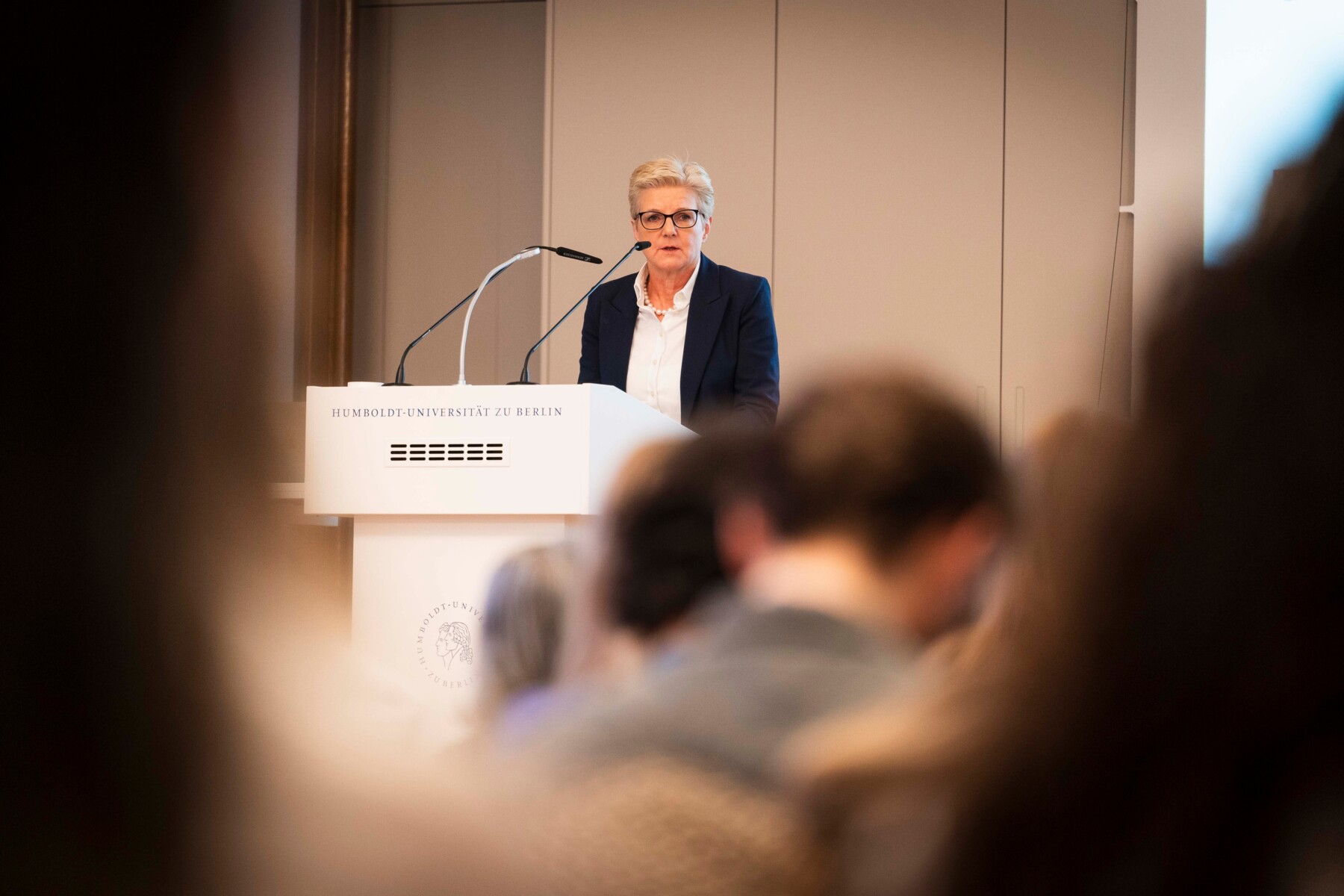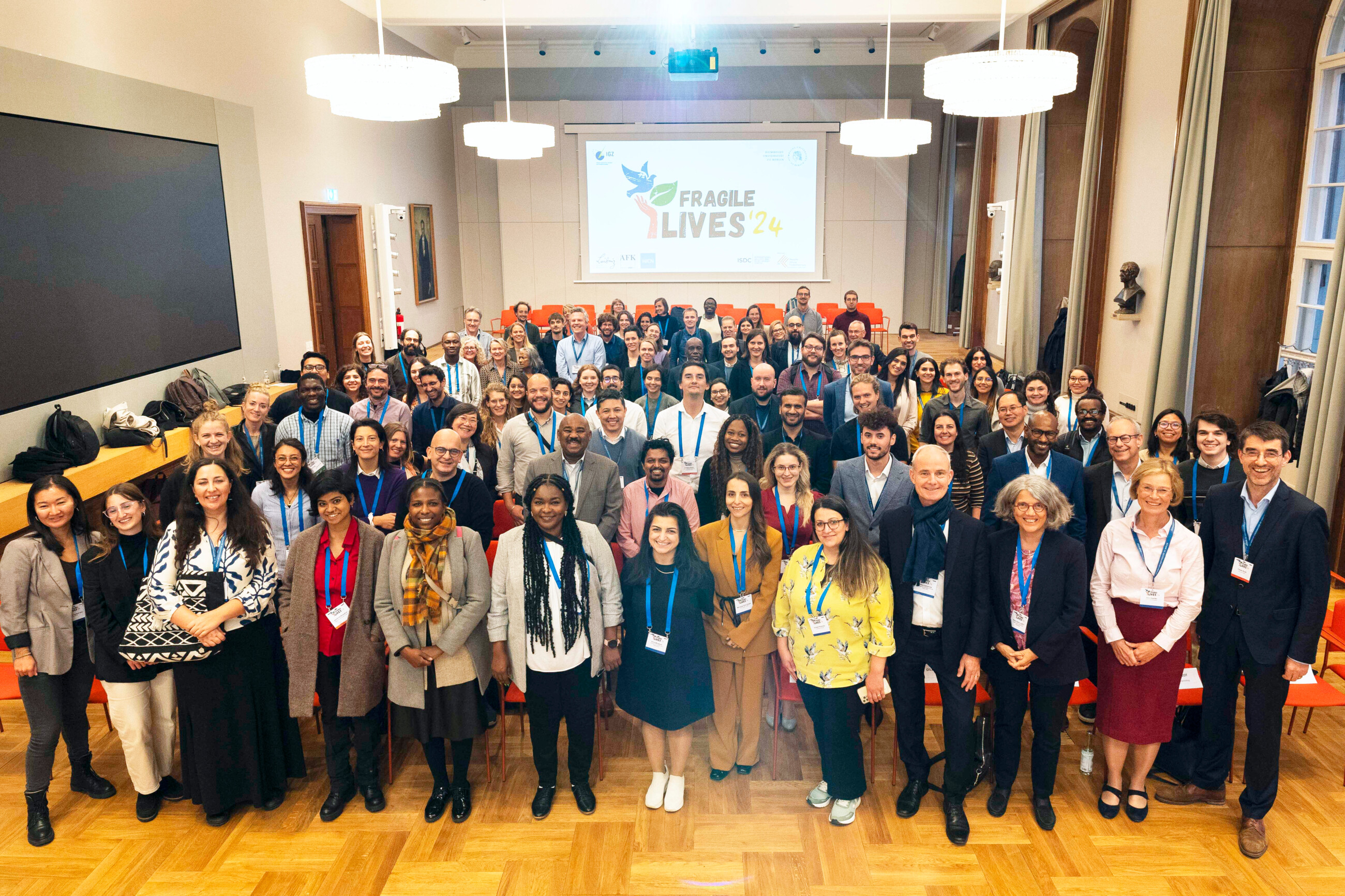Fragile Lives Conference 2024
Researchers and practitioners in pursuit of zero hunger and peace
The opening of Fragile Lives 2024 featured powerful speeches by prominent female leaders. Julia von Blumenthal, President of Humboldt University, emphasized the university's vital role in advancing global discourse on peace and development. Martina Brockmeier, President of the Leibniz Association, stressed the importance of interdisciplinary collaboration. Deike Potzel from the German Federal Foreign Office discussed humanitarian efforts in crisis prevention and peacebuilding. Christine Toetzke from the Federal Ministry for Economic Cooperation and Development highlighted the international dimensions of development cooperation, setting an inclusive tone for the discussions ahead.
The conference showcased two compelling keynote speeches. Agnes Quisumbing from the International Food Policy Research Institute (IFPRI) in Washington, DC, delivered the first keynote, focusing on the role of gender, asset ownership, and empowerment in fostering resilience within fragile communities. Her evidence-driven perspective provided actionable insights for improving development programmes. On the second day, Ibrahim Elbadawi from the Economic Research Forum in Cairo (and a former finance minister of Sudan) discussed the complex socioeconomic outcomes in the wake of the Arab Spring, highlighting the diverse post-conflict recovery paths in the MENA region and offering lessons for future peacebuilding efforts.
The Fragile Lives 2024 conference offered a wealth of engaging sessions beyond the keynotes, addressing critical issues like climate, conflict, and gender. Discussions covered a wide range of topics, from the impact of conflict on food security, humanitarian aid, and media, to less explored issues like health in fragile settings. The conference’s unique strength lay in its interdisciplinary focus on poly-crises. The event drew attention to the interconnectedness of issues like the climate-conflict nexus and the interaction of conflict with gender, trust, agriculture, and household well-being, as well as the links between migration, fragility, conflict, and security. Importantly, Fragile Lives provided a platform where researchers and practitioners could engage in evidence-based discussions, sharing rigorous evaluations of interventions offering practical solutions for resilience, climate adaptation, and peacebuilding.
Tilman Brück remarked, "The Fragile Lives 2024 conference emphasized the critical need for interdisciplinary collaboration and evidence-based interventions. Bridging rigorous research with effective solutions is essential to addressing the complex challenges we face in fragile settings, particularly when striving for peace, resilience, and the elimination of hunger."
More Information
- Zero Hunger Lab: https://zerohunger.de/
- Fragile Lives 2024 Programme: https://zerohunger.de/fragile-lives-2024-program/

